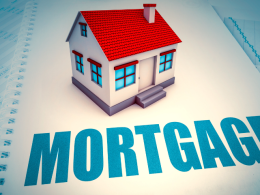The dream of owning your own home is common, but for many, it can feel out of reach due to the high deposit requirements. However, there are options available for those who want to get on the property ladder without a deposit. A no-deposit mortgage is exactly what it sounds like – a mortgage that requires zero down payment. In this blog post, we will dive into everything you need to know about this type of mortgage. From how they work and whether they are cheaper or riskier than traditional mortgages to the roadmap you need to follow to acquire one as a first-time buyer. We’ll also explore the risks associated with getting a mortgage with no deposit and help you navigate the mortgage market so that you can make an informed decision when it comes to buying your own home.
What is a No Deposit Mortgage?

A no-deposit mortgage in the UK is a type of home loan that allows borrowers to purchase a property without having to provide a down payment. In traditional mortgage arrangements, borrowers are typically required to save up a certain percentage of the property’s value as a deposit before they can secure a mortgage. However, borrowers can avoid this upfront cost and finance the entire property purchase price with a no-deposit mortgage.
This type of mortgage is often attractive to first-time buyers or those who may not have substantial savings for a deposit but still want to get onto the property ladder. It’s important to note that no-deposit mortgages may have stricter lending criteria and higher interest rates compared to traditional mortgages, so it’s crucial for potential borrowers to carefully consider their financial situation and seek professional advice before opting for this type of mortgage.
How Do Mortgage Deposits Work?

In the UK, mortgage deposits play a crucial role in home buying. Essentially, a mortgage deposit is the upfront payment that a buyer needs to make towards the purchase of a property. The size of the deposit is typically expressed as a percentage of the property’s value, and it can vary depending on factors such as the buyer’s financial circumstances and the lender’s requirements.
Generally, a larger deposit will result in more favourable mortgage terms, including lower interest rates and monthly repayments. It’s important for prospective buyers to carefully consider their budget and savings in order to determine how much they can afford to put towards a mortgage deposit. Additionally, it’s worth noting that there are government schemes available in the UK aimed at helping first-time buyers get onto the property ladder with smaller deposits.
The Concept of No Deposit Mortgages

No-deposit mortgages have become an increasingly popular concept in the world of real estate, allowing prospective homebuyers to break free from the burden of saving for a substantial down payment. These innovative mortgage products offer an alternative path to homeownership by eliminating the need for an upfront cash investment.
Traditionally, lenders require borrowers to put down a certain percentage of the property’s value as a down payment, usually around 20%. For many individuals and families, this can be a significant financial obstacle that prevents them from entering the housing market.
However, with no deposit mortgages, aspiring homeowners can overcome this hurdle. These mortgages allow homebuyers to secure a loan without having to make a down payment. Instead, the lender assumes a higher level of risk by financing the entire purchase price of the property. In return, borrowers may face higher interest rates or other fees.
No-deposit mortgages can be an attractive option for first-time buyers or those who have difficulty saving for a down payment. They allow them to enter the housing market sooner and start building equity in their home.
It is important to carefully consider the terms and conditions of a no-deposit mortgage before committing, as they may vary between lenders. Assessing the interest rates, fees, and repayment terms is crucial to ensure that the mortgage is affordable and sustainable in the long run. Borrowers should also be aware of the potential impact on their credit score and financial stability.
While no-deposit mortgages offer a way to bypass the need for upfront cash, it’s important to remember that homeownership comes with additional costs, such as property taxes, insurance, maintenance, and utilities. Prospective buyers should carefully evaluate their financial situation and consult with professionals before deciding if a no-deposit mortgage is the right choice for them.
How Much Deposit is Needed to Buy a House?

In the UK, mortgage deposits are a crucial part of the home-buying process. Generally, you will need to have at least 5% of the cost of the home you’d like to buy as a deposit. For example, if you are looking to purchase a home costing £150,000, you would need to have a minimum deposit of £7,500. It’s important to note that having a larger deposit can often result in more favourable mortgage terms and lower interest rates.
Additionally, if you cannot meet the minimum deposit requirement, alternative options such as government schemes or assistance from family members may be available. It’s always best to speak with a mortgage advisor who can guide you through the process and help determine the best options for your individual circumstances.
The Roadmap to Acquiring a Mortgage Without a Deposit

If you’re looking to buy a home but don’t have a deposit saved up, don’t despair. Here is a roadmap of the steps you’ll need to take to get a mortgage without a deposit:
- Get pre-approved for a loan. This is an important first step because it will give you an idea of how much money you can borrow and what interest rate you’ll be paying. It’s also helpful in negotiating with sellers.
- Find a no-deposit mortgage product. A few different types of no-deposit mortgages are available, so do your research to find the best option for your situation.
- Apply for the mortgage. Once you’ve found the right no-deposit mortgage product, it’s time to apply for the loan. Ensure all your documentation is in order so the process goes smoothly.
- Close on the loan and move into your new home! Congratulations, you’ve just bought a home without having to save up for a deposit!
How to Get a Mortgage Without a Deposit in the UK?

A no-deposit mortgage, also known as a 100% LTV mortgage, offers the opportunity to enter the property market without requiring any upfront payment. With this type of mortgage, you can borrow the entire value of the property from a bank or building society. However, it is important to note that most lenders will typically require a minimum deposit of 5% towards the purchase cost of your home. While it is still possible to secure a mortgage without a deposit, 100% mortgages have become extremely rare across the UK following the financial crisis of 2007-2008.
Some lenders provide mortgages without the need for a deposit or the support of a guarantor or family. This new product is designed to assist renters in getting onto the property ladder. To qualify for this mortgage, you must be a first-time buyer with a good credit history and a record of timely rental payments for at least 12 months.
Before securing other debts against your home, consider the consequences. Failure to keep up with mortgage or secured debt repayments may result in repossession.
Are Zero Deposit Mortgages Cheaper or Riskier?

When it comes to zero-deposit mortgages, the question of whether they are cheaper or riskier is complex. On the one hand, not having to put down a large sum of money upfront can make homeownership more accessible and affordable for many individuals. This can be particularly beneficial for first-time buyers who may struggle to save up for a traditional deposit.
However, zero-deposit mortgages typically come with higher interest rates and fees, which can result in higher monthly repayments over the long term. Additionally, without a deposit, borrowers have less equity in their homes from the start, which could pose a higher risk if property values were to decline. Ultimately, it is important for potential homebuyers to carefully consider their financial situation and weigh the potential benefits and risks before deciding if a zero-deposit mortgage is the right choice for them.
What are the Risks of Getting a Mortgage with No Deposit?

Getting a mortgage with no deposit may seem like an attractive option at first, but it is important to consider the risks involved. One of the main risks is that you will have a higher loan-to-value ratio, which means you are borrowing a larger amount than the property’s value. This can result in higher interest rates and monthly repayments.
Another risk is that without a deposit, you will have less equity in the property from the start. If property prices were to fall, you could end up in negative equity, where your mortgage debt exceeds the value of your home. This leaves you vulnerable to financial instability and may make it difficult for you to sell or refinance the property in the future.
Additionally, getting a mortgage with no deposit often means taking on a higher level of debt. This can lead to financial stress and difficulties in meeting your monthly repayments, especially if your circumstances change, such as losing your job or experiencing unexpected expenses.
Furthermore, lenders may view borrowers with no deposit as higher risk, resulting in stricter lending criteria and potentially higher fees or charges. You might also be required to purchase additional insurance, such as lender’s mortgage insurance, to protect the lender in case of default. This adds additional costs to your mortgage and can increase the overall expense of homeownership.
Lastly, obtaining a mortgage with no deposit means relying solely on the property’s value as collateral. If property prices decline or the housing market experiences a downturn, you could find yourself in a situation where you owe more on your mortgage than the property is worth.
Conclusion
In conclusion, getting a mortgage without a deposit can be a viable option for those who are unable to save up a substantial amount of money for a down payment. However, it’s important to consider the risks and implications of such a decision carefully. Zero deposit mortgages may come with higher interest rates and fees, and there is a greater risk of negative equity. As a first-time buyer, navigating the mortgage market wisely and seeking professional advice to understand the terms and conditions fully is crucial. Make sure to assess your financial situation and determine if this option aligns with your long-term goals.









